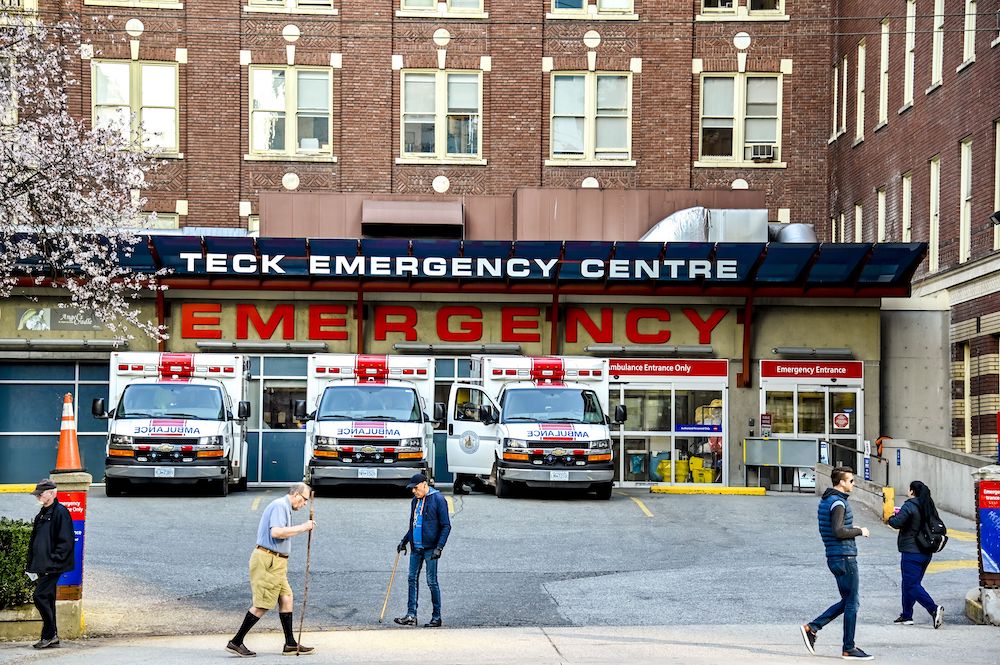Modern, well-equipped hospitals can’t cope with the COVID-19, “the Ebola of the rich,” warns a group of Italian doctors. Other nations might want to rethink their preparation plans with greater emphasis on community treatment.
A “pandemic solution is required for the entire population not only the hospital,” wrote the doctors.
To avoid a collapse of hospital systems the doctors propose that Italy and other nations quickly develop facilities in the community such as home care and mobile clinics to treat less severe patients.
Ten exhausted doctors who work in the city of Bergamo published their plea in the New England Journal of Medicine on March 21st.
Bergamo, which is located north of Milan, is the centre of Italy’s harrowing COVID-19 outbreak.
After recording the deaths of 793 people on Mar. 21, President Guiseppe Conte imposed a Chinese-style lockdown of all non-essential businesses.
To date, nearly 5000 Italians have died.
The doctors all work at Bergamo’s Papa Giovanni XXIII Hospital, a spanking new facility with 48 intensive-care beds.
Bergamo, where more than 60 per cent of the population is infected with COVID-19, gives a chilling illustration of what happens when authorities react to the outbreak too late.
“Our own hospital is highly contaminated, and we are far beyond the tipping point: 300 beds out of 900 are occupied by COVID-19 patients,” wrote the doctors.
Patients have to wait hours for intensive care while older patients are not being resuscitated. Many are being left alone to die.
Morgues can’t handle the dead in Lombardy, one of Italy’s richest and most densely populated regions, and the churches are full of coffins.
Outside of Bergamo, a city north Milan, the situation is worse.
“Most hospitals are overcrowded, nearing collapse while medications, mechanical ventilators, oxygen, and personal protective equipment are not available. Patients lay on floor mattresses.”
Western health care systems have been built around the concept of patient-centered care, said the doctors. But “an epidemic requires a change of perspective toward a concept of community-centered care.
“What we are painfully learning is that we need experts in public health and epidemics, yet this has not been the focus of decision makers at the national, regional, and hospital levels.”
The doctors noted that overwhelmed Italian hospitals now serve as explosive COVID-19 spreaders, “as they are rapidly populated by infected patients, facilitating transmission to uninfected patients.”
In addition, “Health workers are asymptomatic carriers or sick without surveillance; some might die, including young people, which increases the stress of those on the front line.”
The only way to prevent a similar disaster in other countries is to begin a massive deployment of outreach services that keeps as many patients as possible in their homes or other community-based settings.
Treating milder cases in the community would allow hospital to focus on severe cases “thereby decreasing contagion, protecting patients and health care workers, and minimizing consumption of protective equipment.”
Early oxygen therapy, pulse oximeters, and nutrition can be delivered to the homes of mildly ill and convalescent patients which cuts down on the movement of sick and infected patients.
“Bold measures are needed to slow down the infection. Lockdown is paramount: social distancing reduced transmission by about 60 per cent in China,” said the doctor.
Italy has been hard hit by the outbreak for a number of reasons including a government that didn’t take the initial threat seriously.
Chinese business travellers and migratory workers seeded the virus while the nation’s tight family units, which mix both young and old in the same household, rapidly spread the virus.
Italy has one of the oldest populations in Europe.
The Italian doctors urging decentralized care also write that COVID-19 “requires a coordinated transnational effort. It is not particularly lethal, but it is very contagious,” they say, terming it the “Ebola of the rich” because highly developed countries are being brought to a standstill by its advance. “The more medicalized and centralized the society, the more widespread the virus. This catastrophe unfolding in wealthy Lombardy could happen anywhere.”
Italy’s dismal experience with COVID-19, proves that measures “to isolate affected areas and limit the movement of the broader population need to be taken early, put in place with absolute clarity, then strictly enforced.” ![]()
Read more: Health, Coronavirus
















Tyee Commenting Guidelines
Comments that violate guidelines risk being deleted, and violations may result in a temporary or permanent user ban. Maintain the spirit of good conversation to stay in the discussion.
*Please note The Tyee is not a forum for spreading misinformation about COVID-19, denying its existence or minimizing its risk to public health.
Do:
Do not: